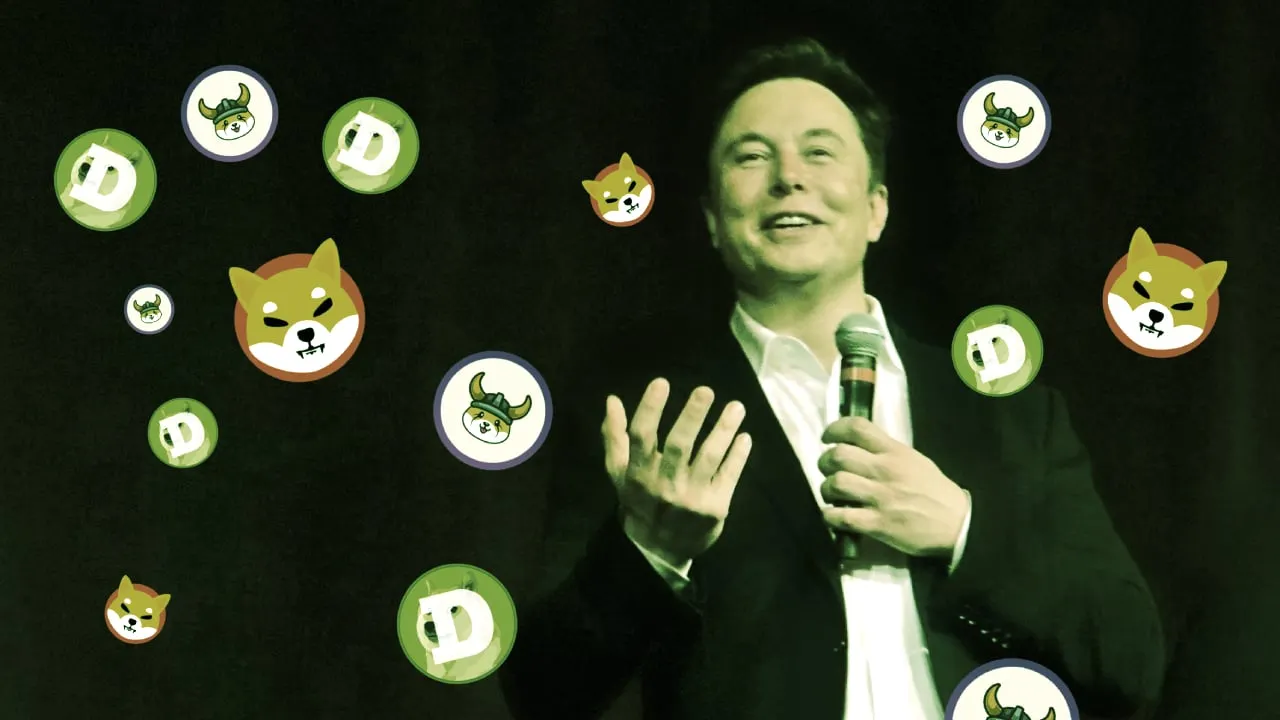
A feature in the new issue of Businessweek declares Jack Dorsey "Bitcoin's spiritual leader."
Maybe so, but on Crypto Twitter, they pray to Elon Musk. The Tesla CEO has 82 million followers to Twitter co-founder @Jack's 6 million, and has gleefully pumped Dogecoin again and again and again, as well as Bitcoin before he decided its environmental impact was a bad look for green-friendly Tesla. (Even after his 180-turn on Bitcoin, Musk's Tesla is partnering with Dorsey's Block to power a Bitcoin mining facility in Texas.)
Now Musk has offered to buy Twitter for $43 billion, holding the tech, financial, and crypto news cycles all in his thrall. Twitter's board will likely reject the offer regardless of the financials and has already poison-pilled Musk to shut him out for longer. New Twitter CEO Parag Agrawal sounds terrified.
But the citizens of Crypto Twitter should be cheering Musk on—not because of his claims that this is all about free speech, but because a Musk takeover would actually mean Twitter adopting the crypto tools it has touted halfheartedly.
Every crypto-related feature Twitter has turned on has fizzled, either by design or due to mismanagement. Twitter rolled out crypto tipping last September, but you can still only tip in Bitcoin; it took a talented hacker to figure out how to add Ethereum to the tip jar. Twitter added verified NFT profile pictures in January, but only for Twitter Blue subscribers ($3 per month), only on iPhone, and only for Ethereum NFTs listed on OpenSea.
Crypto tools don't make any sense if they're approached from a maximalist attitude, limited to just the largest coin or largest NFT market. The point of crypto is openness and decentralization. (Yes, yes, as many point out, Twitter is a centralized company, which is part of the problem—and a single billionaire buying it would only make it less democratic.) Tools like sending someone crypto instantly and verifying your ownership of an NFT via blockchain could help crypto go mainstream by bringing in normies—but only if they're open to a wide range of cryptocurrencies, blockchains, and NFT sources.
That's what Musk wants to do. At a TED event on Thursday, he specifically listed opening up Twitter's source-code on GitHub and enabling Dogecoin for payments for Twitter Blue among his priorities.
Crypto luminaries are on board. FTX CEO Sam Bankman-Fried tweeted, "Because it would all be on-chain, it would be trivial to integrate" better crypto tipping, NFT avatars, and "sure, why not DOGE." Robinhood CEO Vlad Tenev thinks Dogecoin can become "the future currency of the internet." Marc Andreessen supports Musk's buyout. Dogecoin co-founder Billy Markus is cheering it on (though interestingly, the other Dogecoin co-founder, Jackson Palmer, is not).
Musk probably won't get Twitter, but he has clearly reignited a bidding process for the platform, which has not worked as a public company. Disney was ready to buy in 2016, but the day after its board approved the deal, Bob Iger changed his mind because "there were brand-related issues that gnawed at me" and called Dorsey to call it off. Any other big tech brand will have the same brand issues, so the buyer will have to be an individual billionaire or a private equity group like Silver Lake.
Someone is going to buy Twitter and take it private. What crypto advocates should hope for is a person or group willing to work closely with Musk (and his 9.2% stake) to implement the features he wants—and Crypto Twitter needs.
This is Roberts on Crypto, a weekend column from Decrypt Editor-in-Chief Daniel Roberts and Decrypt Executive Editor Jeff John Roberts. Sign up for the Decrypt Debrief email newsletter to get it in your inbox every Saturday. And read last weekend's column: Why Politicians Still Can't Lead With Crypto.

